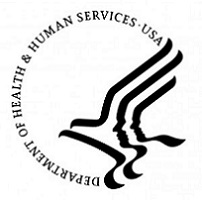 Memo of Understanding confirms collaboration focused on opportunities to encourage students to seek federal careers in health
Memo of Understanding confirms collaboration focused on opportunities to encourage students to seek federal careers in health
Recently, Health and Human Services Secretary (HHS) Xavier Becerra, California State University (CSU) Chancellor Mildred García and HHS Assistant Secretary for Administration Cheryl R. Campbell signed a memorandum of understanding with CSU, the nation’s largest four-year public university system. The memorandum seeks ways to collaborate on channeling students to work in federal health roles and forms a national model for how universities and federal agencies can work together to meet critical workforce needs.
“The nation’s health is stronger when we have a trained, fully equipped, and well-supported health workforce,” said Secretary Becerra. “Thanks to the CSU system, we continue to move in the right direction towards becoming a stronger and healthier nation.”
“This partnership represents a vital alliance that will serve as a national model for preparing a new generation of dynamically diverse healthcare professionals to meet our country’s significant and growing workforce needs, particularly in critical areas such as nursing, public health and behavioral health,” said California State University Chancellor Mildred García. “The partnership will expand career development opportunities for CSU students systemwide through the Department’s outstanding internship, mentorship and experiential training programs, greatly enhancing their preparedness for the healthcare workforce, whether at the Department, in other federal careers, or serving communities here in California or nationwide.”
“Over the past two years we have coordinated efforts across the Department related to workforce – doing everything we can so that HHS programs and policies reach and benefit the largest number of people across the country,” said HHS Deputy Chief of Staff Angela Ramirez. “We will continue our work to strengthen the health workforce in the coming months. And we are already thinking about the next phase of the HHS Health Workforce Initiative and how it will help to drive new innovations that strengthen our health workforce.”
Secretary Becerra also spoke more broadly about ongoing efforts at the U.S. Department of Health and Human Services (HHS) to grow, support and strengthen the nation’s health workforce and the action that HHS has taken to advance those issues as part of the HHS Health Workforce Initiative, which has been supported by the Biden Harris Administration.
In addition to the memorandum, HHS today announced new funding opportunities and programs, new tools and websites on HHS.gov to better find information and promote careers in health care, and also released a new report describing some of these persistent challenges facing the health workforce, as well as how the COVID-19 pandemic exacerbated some of these challenges.
More specifically, these HHS announcements included:
Launch of HHS Health Workforce Website
HHS has launched the “Join the Health Workforce: A Career With Endless Possibilities” website, www.hhs.gov/JoinTheHealthWorkforce. The site highlights support that is available through HHS for those who are interested in joining or advancing within the health workforce.
HHS Assistant Secretary for Planning and Evaluation (ASPE) Report “Health Care Workforce: Key Issues, Challenges, and the Path Forward”
This report describes some of these persistent challenges facing the health workforce including undersupply, maldistribution, and administrative burden, as well as how the COVID-19 pandemic exacerbated some of these challenges. The report also summarizes information about the supply and distribution of several major components of the health care workforce including physicians, nurses, direct care workers, behavioral health workers, and oral health care providers. Furthermore, the report identifies challenges in supply and distribution of health care workers, especially in rural communities, as well as the need to train, recruit, and retain a more diverse workforce. The last section of this paper summarizes what actions HHS agencies have taken to address health care workforce challenges.
Health Resources and Services Administration (HRSA) Notice of Funding Opportunities on Behavioral Health Workforce
HRSA has issued two competitive funding opportunities to continue growing and supporting the behavioral health workforce, including:
HRSA announced the availability of $22.8 million to increase the number of health service psychology students, interns and post-doctoral residents who are prepared for and committed to working in high need and high demand areas after graduation. The program will support training in integrated, interdisciplinary behavioral health, with significant focus on trauma-informed care and substance use disorder prevention and treatment services.
HRSA announced the availability of $59.6 million to increase the supply and distribution of the behavioral health workforce. The program has a specific focus on increasing access to behavioral health services for children, adolescents, and young adults and on recruiting a diverse workforce. There is an emphasis on the interprofessional team-based models of care, which integrates behavioral health training in primary care settings like community health centers.
Applications are due in Grants.gov on January 21, 2025.
